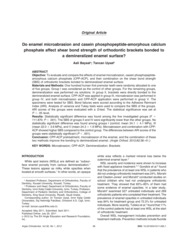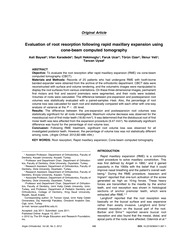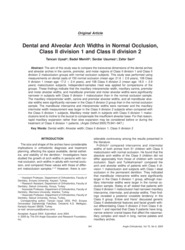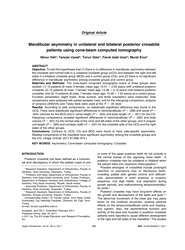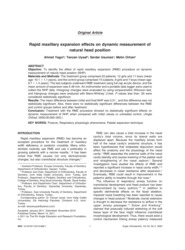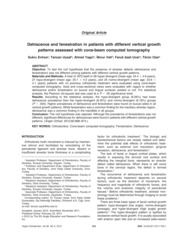Filtreler
Filtreler
Bulunan: 6 Adet 0.000 sn
Yayın Dili : eng ✕Yayın Dili : eng ✕Tür : Makale ✕Yayıncı : The E. H. Angle Educ ... ✕Koleksiyon : KLİNİK BİLİMLER BÖLÜ ... ✕Tam Metin : var ✕
Koleksiyon [4]
İlgili Araştırmacılar [5]
Ambargo Durumu [1]
Tam Metin [1]
Eser Sahibi [5]
Tür [1]
Kayıt Giriş Tarihi [4]
Yayın Dili [1]
Konu Başlıkları [19]
- Cone-beam computed tomography 3
- Alveolar width 1
- Asymmetry 1
- Brackets 1
- CPP-ACP 1
- Class II division 1 1
- Class II division 2 1
- Crossbite 1
- Dehiscence 1
- Demineralization 1
- Dental width 1
- Fenestration 1
- Microabrasion 1
- Orthodontics 1
- Palatal expansion technique 1
- Posture 1
- Rapid maxillary expansion 1
- Respiratory physiologic phenomena 1
- Root resorption 1 Daha fazlası Daha az
 ŞÜKRÜ ENHOŞ
ŞÜKRÜ ENHOŞ